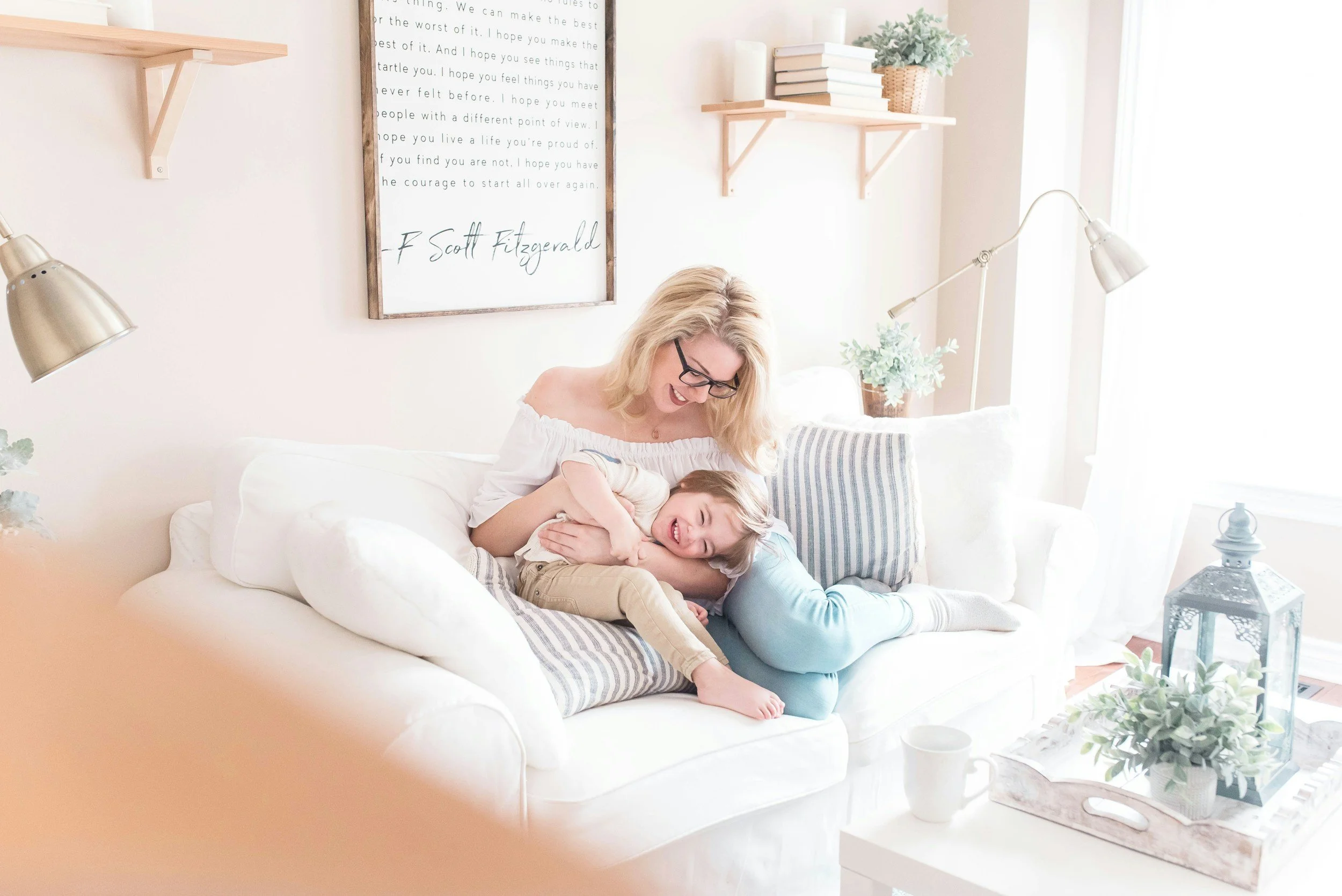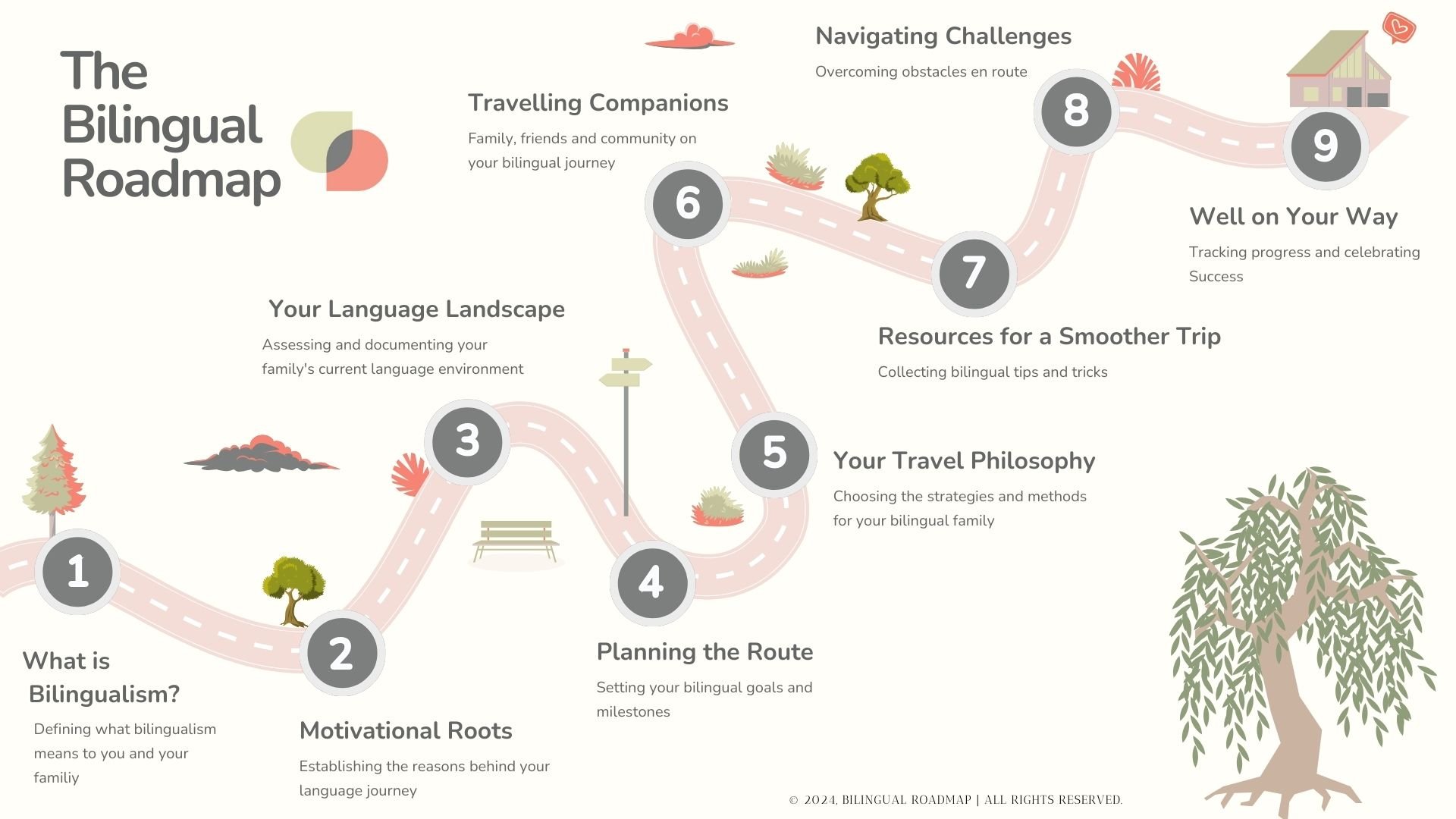Why Bilingualism is a Superpower for your Family: 10 Amazing Benefits of Language Learning for Little Ones
In today's increasingly globalized world, raising bilingual children is more than just a trend—it's a valuable investment in their future. You may already be using different languages in your home due to your heritage or location, or you might be wondering how to start supporting your child to learn a new language. Whatever your motives, the ability to speak multiple languages is a gift that provides numerous advantages, not just for your child but for the entire family. In this blog post, we explore why bilingualism is a superpower and reveal ten amazing benefits of language learning for little ones.
Whether you're just starting your bilingual journey or are looking for ways to enhance your child's language skills, the range of resources on offer at the Bilingual Roadmap, including free guides, coaching, books and an online course, can support you every step of the way.
1. Sharper Minds
Bilingual children outperform monolingual children in tasks requiring metalinguistic awareness, which is the ability to think about language as a system. This advantage stems from their early understanding that objects can have different labels (words) in different languages. For example, they learn that the furry four-legged creature we call a dog in English is also called a ‘perro’ in Spanish and a ‘chien’ in French. This understanding helps them grasp the concept that the relationship between a word and its meaning is arbitrary. This enhanced cognitive ability, and in particular the development of their attention span and multitasking skills, is associated with better academic performance and can benefit children throughout their lives.
2. Super Communicators
Many bilingual children develop heightened communicative sensitivity because they must constantly assess their linguistic environment and adjust their language use accordingly. They become adept at code-switching, effortlessly transitioning between languages depending on the context and the person they are speaking to. For instance, a child might use Spanish with their grandmother, English with their friends, and a mix of both languages with their siblings. This constant negotiation of language strengthens their communication skills and makes them more adaptable in social situations.
3. Empathy Champions
Bilingual children develop greater interpersonal understanding because of their experience navigating multiple languages and cultures. They are more likely to understand and appreciate different perspectives, leading to increased empathy and tolerance. Seeing situations from the perspective of others, something bilingual children must do regularly is the definition of empathy. This empathy translates to stronger social skills and more meaningful relationships.
4. Healthier Brains
The cognitive benefits of bilingualism could extend to brain health. Studies suggest that the constant mental juggling required for bilingualism may offer protection against cognitive decline and could even delay the onset of Alzheimer's disease.
5. Creative Thinkers
Some studies show bilingual children demonstrate increased divergent thinking and are more likely to approach problems from multiple angles. They are less bound by conventional thinking and are better able to come up with original ideas. For example, if asked What can you use a paperclip for?, a bilingual child is more likely to think of unusual uses beyond just holding papers together. This enhanced creativity can be valuable in many areas of life, from problem-solving to artistic expression.
6. Global Citizens
Bilingualism equips children with the linguistic tools to engage with a wider world. They are more likely to pursue international educational and career opportunities, travel to different countries, and connect with people from diverse cultures.
7. Stronger Family Ties
Bilingualism helps children maintain connections with their extended family and cultural heritage. They can communicate with grandparents and other relatives who may not speak the majority language, bridging generational gaps and fostering a sense of belonging.
8. Confident Individuals
Bilingualism can nurture a strong sense of self-esteem and confidence. Children who are comfortable communicating in multiple languages feel a sense of accomplishment and are more likely to embrace challenges. Learning different languages is an achievement which can help children develop a positive self-image and be open to new experiences.
9. Lifelong Learners
Bilingual children can develop a love of learning that extends beyond language acquisition. They are curious about the world, eager to explore different cultures, and more likely to embrace lifelong learning.
10. A Legacy for Future Generations
By raising bilingual children, families are not only investing in their children's future but also preserving their cultural heritage and creating a legacy for future generations. Bilingualism becomes a family tradition that fosters cultural understanding and strengthens familial bonds.
Conclusion
By understanding and encouraging these benefits, families can embark on a rewarding bilingual journey that empowers their children with the cognitive, social, and cultural tools to thrive in a diverse and interconnected world.
Not sure where to start? Need some help with integrating all the languages in your home? To support your family in this journey, explore the resources, coaching programme and online course designed for bilingual families at Bilingual Roadmap. Additionally, the upcoming book ‘Fluent Families: A Roadmap to Your Bilingual Home’ offers practical exercises and insights to help you develop a unique language plan tailored to your family's needs. Embrace the superpower of bilingualism and watch your family flourish!
Katharine Cannings, a Bilingual Family Consultant, resides in Madrid, Spain, where she raises her two multilingual teenagers. Drawing from her two decades of personal and professional educational experiences in multilingual settings, Katharine developed the Bilingual Roadmap, a distinctive approach designed to assist families in creating and sustaining a multilingual home environment. Her work as a Bilingual Family Consultant and author of ‘Fluent Families: A Roadmap to Your Bilingual Home’ focuses on empowering families to integrate multiple languages into their daily routines through a personalized structured and supportive framework. Through workshops, courses, personalized coaching, and her publications, Katharine is committed to making bilingual upbringing an achievable and enriching endeavour for parents worldwide.


